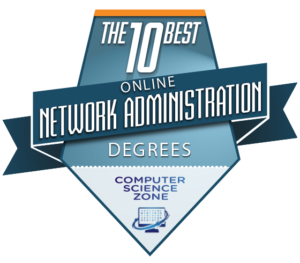
Our world runs on networks. We’ve reached and breached the days when the world can operate on anything but the instantaneous exchange of data. This environment leads to a number of new concerns, threats, logistical issues and much more that must be dealt with. In order for networks to run smoothly, they need administrators. Network or System administrators make sure computer networks are up to date, working well, and free of attacks and threats to their operation. Organizations frequently use multiple computers, systems, and software in order to operate, and a network administrator works to coordinate these and much more. In these roles, you’ll be indispensable to any organization that needs you, and increasingly organizations are realizing they’re vulnerable to network and security issues and external attacks, yet they have no full-time, dedicated employees who work on these issues. This is leading to high wages, job security and expanding roles. According to the U.S. Bureau of Labor Statistics, the number of jobs available for network and computer systems administrators is expected to increase by 6 percent through 2026. They also found the median annual wage for network and computer systems administrators was $81,100 in 2017. If you’re looking to enter this field and quickly rise within its ranks, a Bachelor’s degree is a great way to start. And earning that degree online is a great way to maintain your work/life obligations, improve your career options and pay less time and money to earn your degree. A BS in Information Technology with a concentration in Network and Telecommunications will give you incredible utility within the IT and computer science fields. This ranking was designed with the following methodology:
-
- Affordability (1/3): the overall average cost of the program for out-of-state students, per credit hour; other fees not included.
Flexibility (1/3): the makeup of the program: fully online, hybrid, or class-based learning with online features.
- Academic prestige (1/3): the strength and reputation of a given program according to other prominent rankings like US News & World Report.
1) Western Governors University

WGU is a private, non-profit university operating from Salt Lake City, Utah. It has nearly 84,300 students and a 41:1 student-to-faculty ratio. WGU uses a competency-based learning model, using assessments throughout their program to determine whether students are absorbing and building the knowledge and skills they need to earn their degree. Former United States Department of Education Secretary Arne Duncan said of this kind of results-oriented online programming, “…programs [like WGU] are now the exception, I want them to be the norm.” WGU is a multiple winner of the 21st Century Award for Best Practices in Distance Learning from the United States Distance Learning Association. It was established in 1997, and grew alongside the Internet. It has now been producing stellar online education for decades. In the past few years WGU has become the nation’s top producer of science and math teachers. In 2013, it was ranked #28 out of the 50 most innovative companies in Fast Company’s Most Innovative Companies Issue.
WGU offers an online Bachelor of Science Cloud and Systems Administration. Over the course of it you’ll pick up 18 industry certifications for no extra cost or time, including the Amazon AWS SysOps Administration-Associate. It can be completed in 6-36 months, depending on how well you know the material you’re being taught. This program costs $3,190 per six month term. Over that term, you have options for how many courses you pile on, determining both the cost of your degree and how long it takes to earn it. The program begins with core courses in math and humanities, which can be cleared with transfer credits. There are then a host of computer science courses, including Cloud Foundations, Emerging Technologies, Linux Foundations, Cloud Applications, Network and Security – Foundations, Networks, and Network and Security – Applications, among many others.
- Homepage
- Estimated annual expenses for full-time beginning undergraduate students in 2017-18: 1st ($6,070)
2) Middle Georgia State University
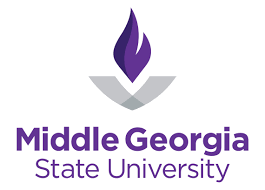
MGSU is a public university and part of the University System of Georgia. It’s based out of Macon, Georgia. It was founded in 1884, but has recently merged with another state school to create a larger MGSU. The school offers Master’s, Bachelor’s, Associate degrees, and some certificates, to students on five campuses in Middle Georgia, and online everywhere. It’s made up of colleges/schools of Arts and Sciences, Aviation, Business, Education and Social Sciences, Health Sciences, and of course, Information Technology. Over 7,700 students attend MGSU, which has a 20:1 student-to-faculty ratio.
MGSU offers an online BS in Information Technology. The program comes in five concentrations, including Cyber Security, Cyber Forensics, Network Technology and Administration, Software Engineering, Integrated Digital Media and Gaming Design, and Web Applications Development. Tuition for the entire program (120 credits) should come in under $19,000 according to Middle Georgia. Up to 40 credit hours can be completed through completing the CLEP and DSST exams in this program, and transfer credits are accepted as well. The program was accredited by the Accreditation Board for Engineering and Technology (ABET).
- Homepage
- Estimated annual expenses for full-time beginning undergraduate students in 2017-18: 4th ($11,092)
3) Colorado Technical University
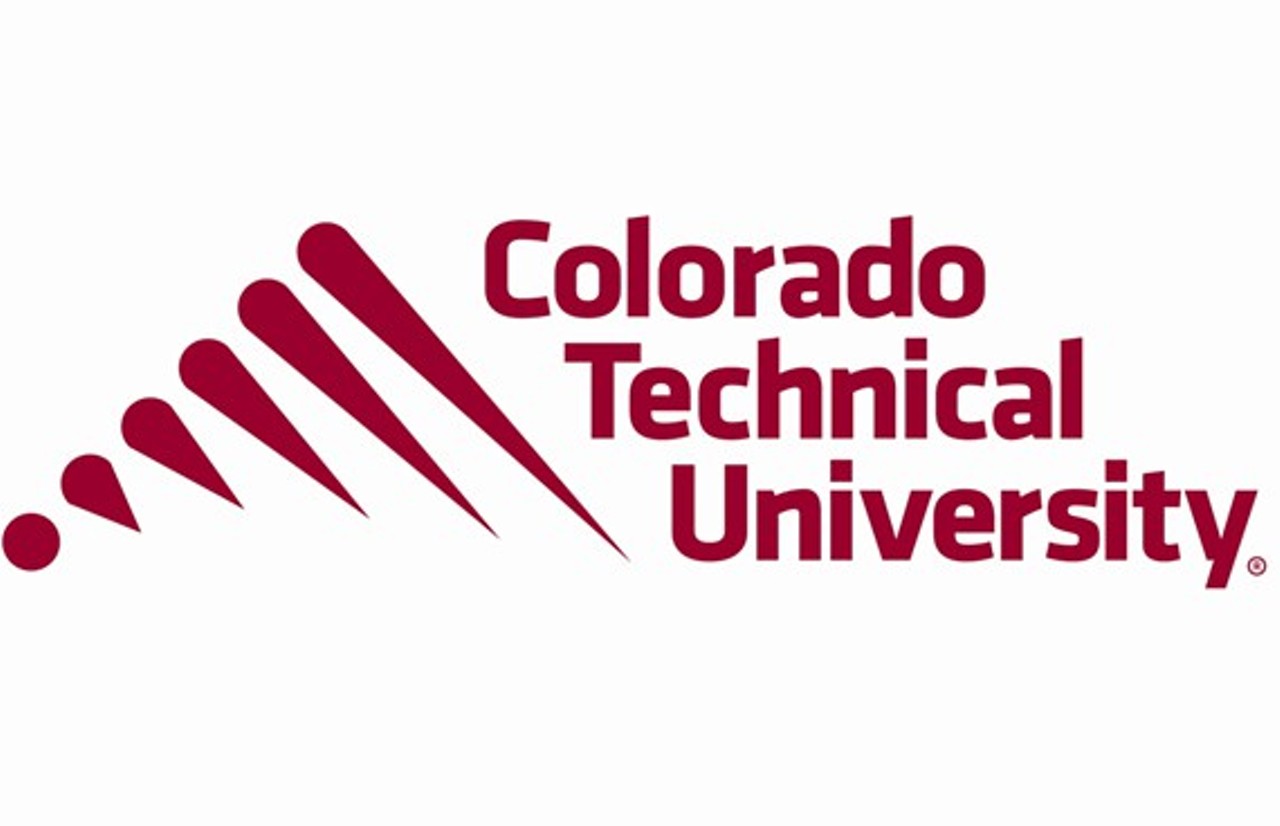
CTU is a for-profit, mostly online university. It was founded in 1965. Almost 92% of its over 25,500 students attend CTU online, and it has a 28:1 student to faculty ratio. It offers degrees through colleges of Business & Management, Engineering & Computer Science, Health Sciences, Information Systems & Technology, Security Studies and Project Management. The school is mostly funded by the Department of Defense and GI Bill, which could lead graduates to careers in government agencies especially as network security concerns continue to grow. In 2015, CTU was ranked 58th on the U.S. News & World Report list of Best Online Programs. CTU has been consistently recognized for its online degree programs, and its online bachelor’s degree programs have been ranked among the Best Online Bachelor’s Programs by U.S. News and World Report for four years running.
CTU offers a Bachelor of Science in Information Technology with a specialization in Network Management. Sample courses in the Network Management specialization include Project Risk Management, Principles of Network Security, IT Support Systems, Disaster Recovery, and many others. This program looks at the identification and communication of technical issues in network security, wireless networking protocols, as well as security issues and threats. You’ll get practical experience through network management training, and build a portfolio of projects that will be immediately alluring to employers. You’ll also have the opportunity to earn your Network+ Certification which shows your abilities “in managing, maintaining, troubleshooting, installing and configuring basic network infrastructure. This CTU degree program offers a curriculum designed in accordance with standards set by CompTIA, an independent provider of IT certifications in the world.”
- Homepage
- Estimated annual expenses for full-time beginning undergraduate students in 2017-18: 5th ($11,689)
4) Florida State College at Jacksonville
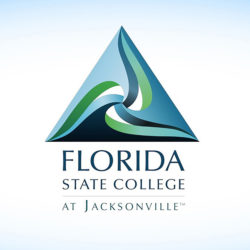
FSCJ is a public, state school. It was founded in 1965 as a junior college, eventually upgrading to a community college, and eventually being promoted by the Florida Legislature into a state school. Florida State College at Jacksonville has gone from 2,610 students in Fall 1966 to over 24,000 students currently (22:1 student-to-faculty ratio). During that time its offerings have grown to 13 bachelor’s degrees, 45 associate degrees and over 100 technical certificates and workforce certifications. It ranks among the top 25 most affordable four-year schools in the nation, and its students hail from over 146 countries, ranging in age from 15 to 77. It was ranked 11th in the nation out of 4,548 schools by Community College Week.
FSCJ offers an online Bachelor of Applied Science (B.A.S.) in Computer Systems Networking and Telecommunications. It will give graduates technical and managerial skills that will be instantly desirable in the IT and computer science job market. Topics covered in the curriculum include System Design and Analysis, Network Management and Control, Network Flow Optimization, Network Configuring and Troubleshooting, and Information Security. This program is accelerated, and can be completed in 20 months. FSCJ notes that job seekers with training and experience in network virtualization and security can expect high salaries and diverse job opportunities. There are three application dates for the different starts of this program, which are: Fall Term (apply by June 1), Spring Term (apply by October 1), and Summer Term (apply by February 1).
- Homepage
- Estimated annual expenses for full-time beginning undergraduate students in 2017-18: 3rd ($9,992)
5) Excelsior College
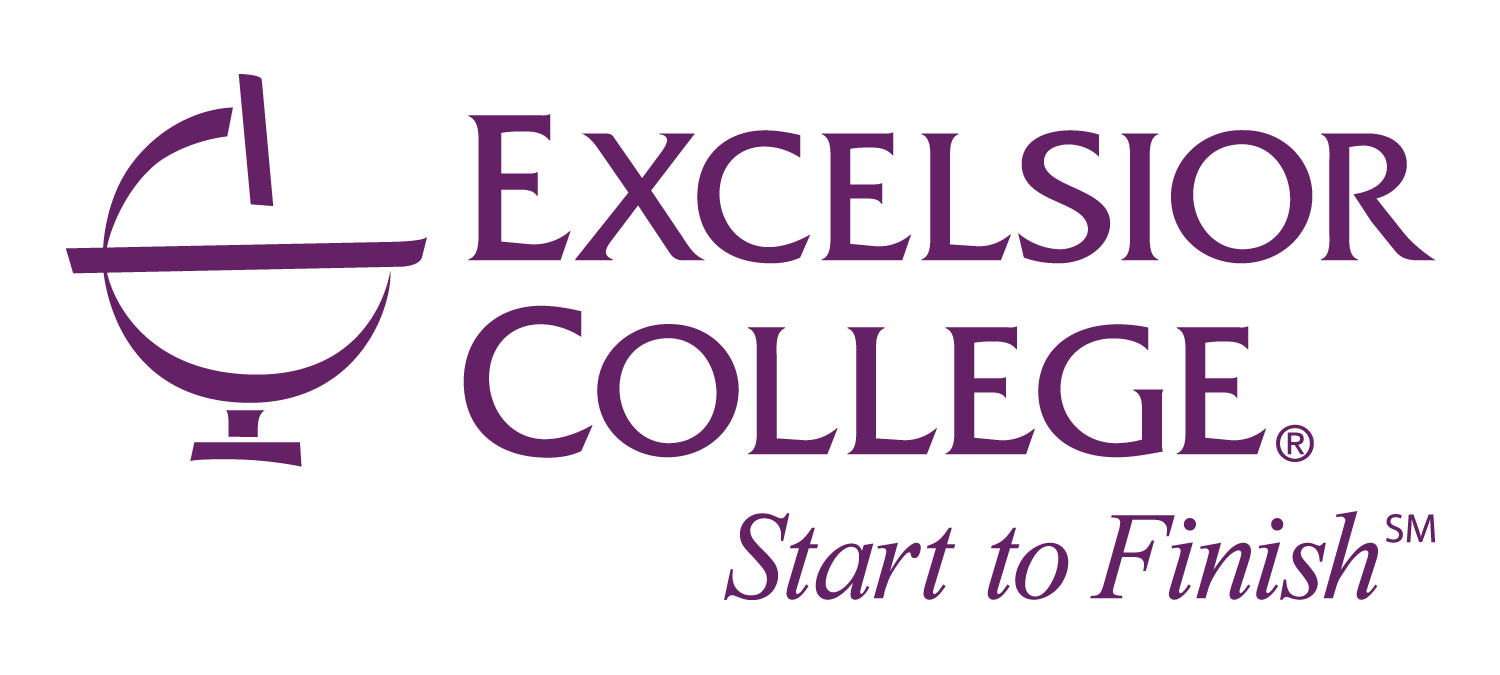
Excelsior College is a private, non-profit school based out of Albany, New York. It was founded in 1971. Over 36,000 students attend the school. Excelsior was created by the New York State Board of Regents as an external degree institution, and accredited by the Commission on Higher Education of the Middle States Association of Colleges and Schools. Excelsior is known for being extremely permissive in its acceptance of transfer credits from other schools. It has been commended for its flexibility, and tries to educate its students without drastically changing their lives and schedules. EC is also known for taking great care of military veterans and active service members. It’s comparable to Thomas Edison State College in New Jersey and Charter Oak State College in Connecticut, and together the three schools are known as “The Big Three” in the distance learning community.
Excelsior offers an online Bachelor’s in Information Technology with a concentration in Network Operations. There are several related concentrations in Cybersecurity, Information Security, among others. The program’s delivery allows students to maintain a full-time working schedule, and take classes at their convenience. Excelsior touts the program’s affordability, timetable to complete, and marketable IT skills it develops. According to the school, students will be prepared to work on areas of IT like Network systems design, Wireless networking technology, Telecommunications, Network operating systems, and Project management. This program is accredited by the Computing Accreditation Commission of ABET. The programs curriculum is broken down into 120 credits: 60 of which are in arts and sciences, 48 in technology, and 12 in free electives including information literacy.
- Homepage
- Estimated annual expenses for full-time beginning undergraduate students in 2017-18: 7th ($12,240)
6) Bellevue University

Bellevue University is a private university based out of Bellevue, Nebraska. It was founded in 1966. Bellevue’s identity is founded in adult education, with the majority of its undergraduate students aged 25 and over (80% as of 2011). The total student population is almost 9,000 students, with about 5,500 of them being undergraduates. The class sizes are generally pretty large, as the student-to-faculty ratio is 31 to 1. Common features of Bellevue programs include accelerated, cohort-based, and/or online delivery. In the 80’s, Bellevue almost closed, but was able to refocus its programming and eventually expand the school.
Bellevue University offers an online Bachelor of Science in Systems and Network Administration Program (SNAP). It can also be taken on-campus if that’s a better fit for you. Just some of the hardware and software you’ll be come familiar with includes, Microsoft® Server, Linux operating systems, VMWare® vCenter vSphere, Cisco® networking products, Database management systems, Apache® and IIS® Web servers, Messaging Systems, and Information Security. In 2017-18 this program costs $410 per credit hour, and it will cost $415 per credit hour in 2018-19. This program recommends checking with an admissions counselor to seep if you have the background and aptitude to succeed in this program.
- Homepage
- Estimated annual expenses for full-time beginning undergraduate students in 2017-18: 2nd ($7,752)
7) Regis University

This Roman Catholic, private, co-ed university was established by the Society of Jesus in 1877. Over the years Regis has split into five institutions: Regis College, The Rueckert-Hartman College for Health Professions, the College for Professional Studies, the College of Computer and Information Sciences, and the College of Business and Economics. In 2013, Regis was ranked in the top-tier on the U.S. News & World Report for the 19th consecutive year. Operating out of Denver, Colorado, Regis is ranked 23rd in the region in 2017. There are almost 8,400 students attending Regis, which has a 14:1 student-to-faculty ratio. Regis has been identified as a top school in friendliness towards the military. In 2014 Regis created its College of Computer and Information Sciences with programs in Computer Science (CPS), Computer Information Systems, and Computer Networking, which are all ABET accredited.
Regis offers a B.S. in Computer Networks online. You’ll be prepared for a career in data networking through hard-work and dedication in this program. The program focuses on “…analysis, architecture, design, security architecture and administration of networks and network technologies.” Through Computer Networking coursework and laboratory work, you’ll start to excel and master computer information technology concepts and their applications within real-world business problems. Students will take on CS security issues like hacking, viruses, cyber-vandalism and more. Most importantly, you’ll learn how network and computer systems administrators can protect data, then do so in your career.
- Homepage
- Estimated annual expenses for full-time beginning undergraduate students in 2017-18: 13th ($35,610)
8) Fort Hays State University
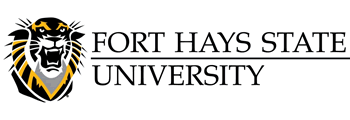
FHSU is one of the largest state schools in Kansas. Approximately 14,650 students attend the school, more than half of them online (16:1 student-to-faculty ratio). It was established in 1902, on the grounds of a recently closed frontier military outpost. FHSU began as an agricultural school, then transitioned into traditional scholastics. FHSU now is made up of four colleges: Business and Entrepreneurship, Arts Humanities and Social Sciences, Education and Technology, and Health and Life Sciences. These colleges offer 30 departments, 60 undergraduate majors and 19 graduate programs. Students at FHSU are offered extreme flexibility in building from a certificate or Associates degree to a Bachelor’s or Master’s in a variety of programs. FHSU offers almost 30 degrees entirely online. Its online programs in counseling, human resources, IT and computer science, and nursing have been ranked top 5 in affordability in the US by OnlineU.Org. Its online students come from more than 27 countries.
FHSU offers an online Bachelor of Science in Information Networking and Telecommunications Computer Networking concentration. Through this program you’ll gain tools that improve your analytical problem-solving technical skills. Career outcomes include working for “telecommunications companies or in corporate, education, law enforcement, health care, and other computer and network positions.” Through this program, you’ll be prepared to sit for the
following certifications: Cisco Certified Entry Networking Technician (CCENT), Cisco Certified Network Associate (CCNA), Cisco Certified Network Professional (CCNP), and CompTIA Security+. Sample major courses include Intro to Web Development, Foundations of Information Networking, Research Methods in Informatics, and many others. Students can also take cross concentration electives in media studies or web development.
- Homepage
- Estimated annual expenses for full-time beginning undergraduate students in 2017-18: 8th ($14,832)
9) Dakota State University

DSU was founded in 1881 in Madison, South Dakota. DSU is known for their graduate and undergraduate programs in computer science, business, education, natural sciences, liberal arts and more. Its motto is, “Technically, we’re better.” There are nearly 3,200 students (17:1 student-to-faculty ratio), and the overwhelming majority of graduate students take their classes primarily online. In 2013, DSU ranked 4th among online schools in the United States on Guide to Online Schools’ rankings that year. It also tied at #32 among top public schools in the 2017 U.S. News & World Report’s midwest rankings.
DSU offers a Bachelor of Science in Network and Security Administration. The program grapples with the rapidly changing world of system administration, choosing to rely on practical, hands-on problem solving coursework as opposed to outdated textbooks and other anachronistic coursework. This program will cover networking, business management, cyber security, virtualization and forensics, and much more. Class sizes are small (usually 25 or less students). DSU is known for its virtual and physical labs. Students will be able to explore network set-ups and exploits through these labs, which truly set DSU apart from its competition. Students will use “enterprise-level hardware like routers, switches, firewalls, and VoIP phones to practice real-world configurations.” You’ll also be able to safely practice defensive hacking and network forensics.
- Estimated annual expenses for full-time beginning undergraduate students in 2017-18: 6th ($12,077)
10) Southern New Hampshire University

SNHU is a private, nonprofit New Hampshire university. It was founded in 1932 as a small, regional university but has since grown drastically. Currently, over 73,100 students (30:1 student-to-faculty ratio) attend SNHU, the vast majority in distance education (over 60,000). SNHU is known for its online programming, and how successful its been at growing in the digital era. It was listed by Fast Company as the 12th most innovative organization in the world, ranking alongside companies like Apple, Google, and HBO, and above NFL, Starbucks, and LinkedIn. SNHU’s accelerated classes give students superb flexibility to complete their degrees. The school is known for its Business, IT and Computer Science programs.
SNHU offers an online Bachelor’s in Information Technology program. It comes in eight concentrations, including Network & Telecommunications. The program allows students to transfer in their certifications and professional experience for credits. The program builds “analytical and technical skills you’ll need to strengthen the connection between computer and communications systems with this telecommunications degree online. You’ll also learn how to address issues and enhance the performance of internal systems for public and private companies, government and municipal agencies, and nonprofit organizations.” Sample courses include IT Service Management, Network Planning and Maintenance, Network Security and much more. In total this program requires 120 credits, and costs $320 per credit hour.
- Homepage
- Estimated annual expenses for full-time beginning undergraduate students in 2017-18: 12th ($31,136)
